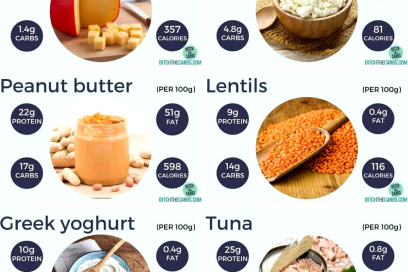As a leading expert on the subject, I am often asked if vegans can eat fish. This misconception about veganism needs clearing up. In this article, we will examine the ethical and environmental ramifications of fish consumption, and explain why vegans don't indulge in it.
Veganism is about abstaining from all forms of animal exploitation, including that which may be seen as "harmless" as fish. Contrary to popular belief, fish are sentient beings with the capacity for suffering and stress just like any other living creature. Research has even demonstrated that fish possess cognitive abilities and experience pain and distress just like us humans do. This misconception about vegans eating fish stems from this reality.
It is essential to comprehend why vegans opt for avoiding any animal products, including fish. The fishing industry has a notorious reputation for its cruel treatment of fish, leading to massive depletion of stocks and destruction of marine ecosystems. Furthermore, there are environmental considerations surrounding fish consumption which need to be assessed when deciding whether or not it is an ethically sustainable dietary option.
Can vegans eat fish? Unfortunately, the answer is no. In this article, we'll explain why it's not advised for vegans to eat fish and provide other sustainable options for those seeking a compassionate lifestyle that respects the environment.
I. Ethical Considerations Affecting Fish Consumption
When considering what food to consume, ethical considerations should always take priority over environmental considerations.
When thinking of animal cruelty, your mind may immediately conjure up images of dogs or cats being mistreated. Unfortunately, many people overlook the detrimental effect that fishing has on fish and other marine life. As previously noted, fish possess cognitive abilities as well as experience pain, suffering and stress just like any other animal does; thus it's essential to consider ethical considerations surrounding fish consumption.
The fishing industry is one of the biggest and most pervasive industries responsible for animal exploitation, with grave consequences on marine life. Fish are often caught using long lines or trawling nets which cause excruciating pain and injury to those involved. Whether caught in the wild or raised in captivity, harvesting fish for consumption is inhumane, environmentally destructive and ultimately unnecessary.
Fishing not only causes physical harm to fish, but it can also negatively impact their natural reproductive characteristics. Popular catching methods often involve overfishing so that small and young fish have no chance of surviving, leading to depletion in the existing population and disrupting the aquatic ecosystem's balance.
Fish capture is not the only concern when it comes to fish welfare; how they're transported and distributed causes further stress and pain. For instance, many are transported in cramped and crowded conditions that don't ensure their wellbeing.
Veganism is the commitment to abstain from contributing to the exploitation of any animals, including fish. As a vegan, one can live an ethical and cruelty-free life that not only benefits themselves but also millions of other sentient beings on our planet. In the next section, we'll address the environmental consequences associated with fish consumption and why reducing seafood consumption is necessary for maintaining our planet's sustainability.
II. Environmental Concerns Affecting Fish Consumption

Finally, let us discuss some environmental considerations related to fish consumption.
Beyond the ethical issues associated with eating fish, we can begin to appreciate the ecological cost that the fishing industry takes on our planet. Overfishing and bycatch are two pressing problems with grave consequences. Let's investigate why reducing seafood consumption is necessary for maintaining environmental sustainability on Earth.
Overfishing is the practice of taking too many fish from one area, which eventually results in depletion of fish populations. With an ever-increasing demand for seafood, commercial fishing has seen severe overexploitation of ocean fisheries through large-scale industrial fishing methods, leading to a decrease in overall species numbers.
The decline of fish populations has had serious economic, ecological, and social repercussions for coastal communities that rely on the sea for their livelihoods. It also has an immediate effect on marine predators that depend on fish as a primary source of food - seals, dolphins, whales - who become vulnerable without fish in their diets. Without fish stocks, these animals struggle to survive while entire ecosystems may become imbalanced.
Bycatch is an increasingly pressing environmental concern when it comes to fish consumption. Bycatch refers to the capture of unintended marine life during commercial fishing operations, particularly with trawling equipment. Unfortunately, commercial fishing often results in harm and injury to many non-target species such as other fish, marine mammals and birds - sometimes leading to death.
These consequences can have a long-lasting effect on the marine ecosystem, particularly with regard to other marine species' health and wellbeing. That is why abstaining from eating fish offers such an important advantage in conserving this delicate system.
Fish farming, while often seen as the "humane" option to source fish, comes with its own environmental costs. Farmed fish are often fed corn or soy from farms with massive environmental impacts; even just the process of sourcing and transporting the feed creates its own environmental damage through greenhouse gas emissions, land use changes and water consumption.
As a vegan, you are making a conscious choice to reduce your carbon footprint and benefit the environment. In the next section, we will explore alternatives to fish-based diets for vegans that can help you make an even greater positive impact on our planet.
III. Vegetarian Alternatives to Fish-Based Diets
Vegans looking for alternatives to the fish-based diet may find these suggestions beneficial.
One of the common misconceptions surrounding veganism is that eating plant-based meals is limited and lacks variety. This couldn't be further from the truth! There are plenty of alternatives to fish-based diets for vegans, many of which have even been praised for their nutritional value and delicious taste.

Cruelty-free seafood alternatives have become more and more prevalent, with more and more plant-based options hitting the market. Popular choices include soy-based seafood, plant-based shrimp, vegan fish oil supplements that provide all essential fatty acids found in fish oil without the environmental harm.
Vegans looking for a balanced diet can turn to plant-based proteins for help. Lentils, beans, tofu and tempeh are just a few examples of popular plant-based proteins that can be used in various dishes from hearty stews to flavorful stir fries.
Some vegetarian foods are even becoming increasingly popular as substitutes in seafood dishes. Jackfruit and mushrooms can be used to replace crab or lobster in sea-food based dishes. With so many plant-based protein options and these vegetarian foods available, veganism doesn't need to be boring or limited!
By adopting a vegan diet, you'll get to discover new flavors and cuisines, as well as spices and ingredients you may never have tried before. You'll likely find that plant-based cuisine is just as delicious and varied as any meat or fish-based one - if not more so!
Recently, vegan cuisine has seen a major uptick in creativity - restaurants around the world are striving to offer unique and delectable plant-based meals. As a vegan, your taste buds and health will appreciate all that plant-based meals have to offer.
In conclusion, veganism means abstaining from all forms of animal exploitation, including fishing. By choosing cruelty-free alternatives to meat and seafood products, one can enjoy variety and nutrition while supporting a sustainable, ethical and environmentally conscious lifestyle that safeguards our planet. Vegans can live a life filled with nutritious food options while simultaneously contributing to the wellbeing of our environment.
IV. Are pescatarians considered vegetarians?
Pescatarians are vegetarians who incorporate fish into their meals as an addition to plants. This lifestyle was developed as a response to ethical and environmental issues surrounding meat consumption, yet still involves the consumption of seafood.
Though vegetarianism and pescatarianism share some similarities, there are also distinct distinctions. Vegetarians abstain from all forms of animal exploitation including fish while pescatarians make an exception for seafood.
Individuals who desire a vegetarian lifestyle but cannot bear to give up fish often refer to themselves as "pescatarians". They argue that fish lack intelligence compared to mammals and thus should not be eaten. Despite this, scientific evidence demonstrates that fish are sentient beings capable of feeling pain and distress just like any other animal.
In addition to ethical considerations, it is essential to recognize the environmental consequences of eating fish as discussed earlier in this article. Vegetarians who incorporate seafood into their regular meals could still be contributing to overfishing and bycatch issues.
As a vegan, you have made the conscious decision to abstain from all forms of animal exploitation - including fishing. This decision promotes an environmentally responsible lifestyle and seeks to limit the exploitation of living beings. Vegetarians can still make positive impacts by reducing their meat and dairy intake; however, they cannot be considered vegetarians since seafood consumption does not adhere to vegetarianism's principles which prohibit consumption of any kind of fish.
Individuals ultimately have the freedom to decide what they eat, but veganism offers us an opportunity to stand up against all forms of animal exploitation in order to safeguard our planet and its inhabitants.
Conclusion
In conclusion, it is evident that vegans do not eat fish. The ethical and environmental concerns surrounding its consumption make it clear that this lifestyle promotes sustainability, compassion, and an awareness of environmental impact. By abstaining from meat consumption, vegans promote sustainability, compassion towards others, and overall environmental awareness.
Fish are sentient beings capable of feeling pain, fear and distress just like any other animal. Unfortunately, the fishing industry's cruel treatment of fish is leading to the depletion of fish populations and destruction of marine ecosystems. Overfishing and bycatch are environmental concerns with severe repercussions for marine life.
Cruelty-free seafood alternatives, plant-based protein sources and vegetarian foods can be great options for vegans looking to maintain a balanced and nutritious diet, making the vegan lifestyle anything but restrictive or monotonous.
By informing people about the ethical and ecological concerns related to fish consumption from a vegan perspective, we can foster a more compassionate society that upholds all living beings' rights. It is inspiring to see people around the world embracing veganism in small but significant ways - towards living a more compassionate, sustainable, and environmentally aware lifestyle that also helps safeguard our planet's future.
In conclusion, while fish is an excellent source of protein, vitamins, and minerals for humans, veganism is the better option when it comes to protecting our planet's resources and the welfare of all living beings. Make the switch today and join in on this compassionate and sustainable lifestyle!




